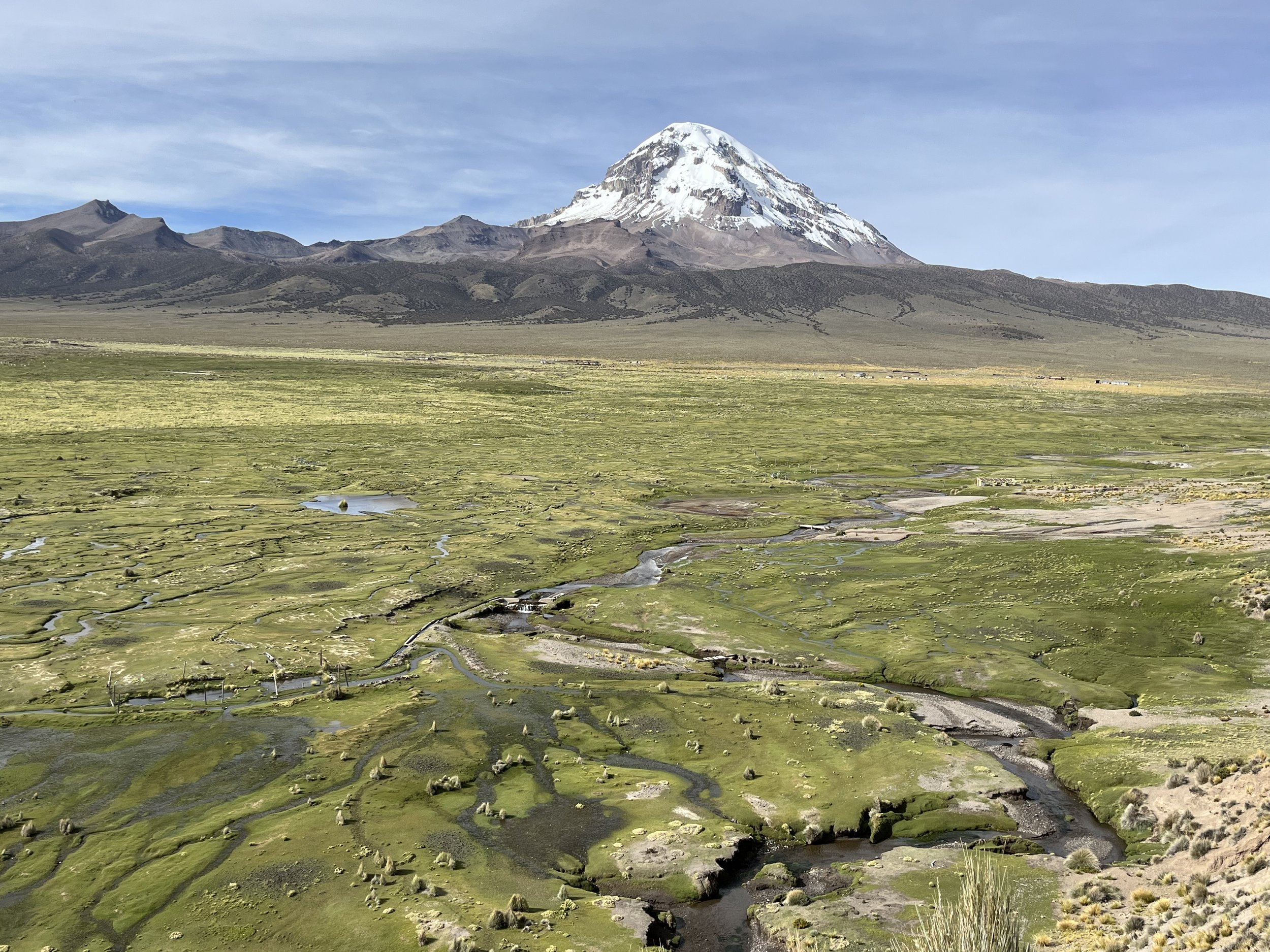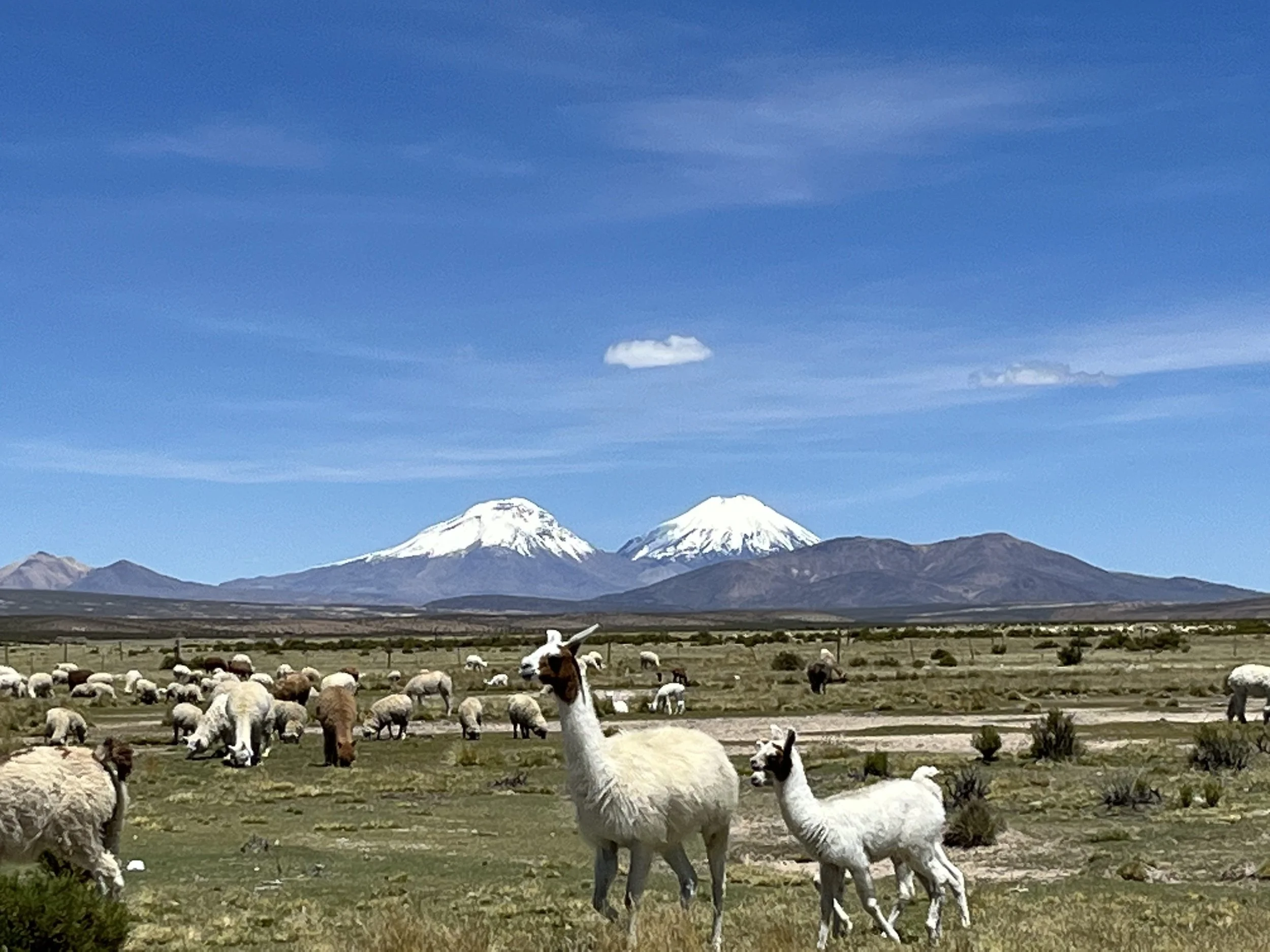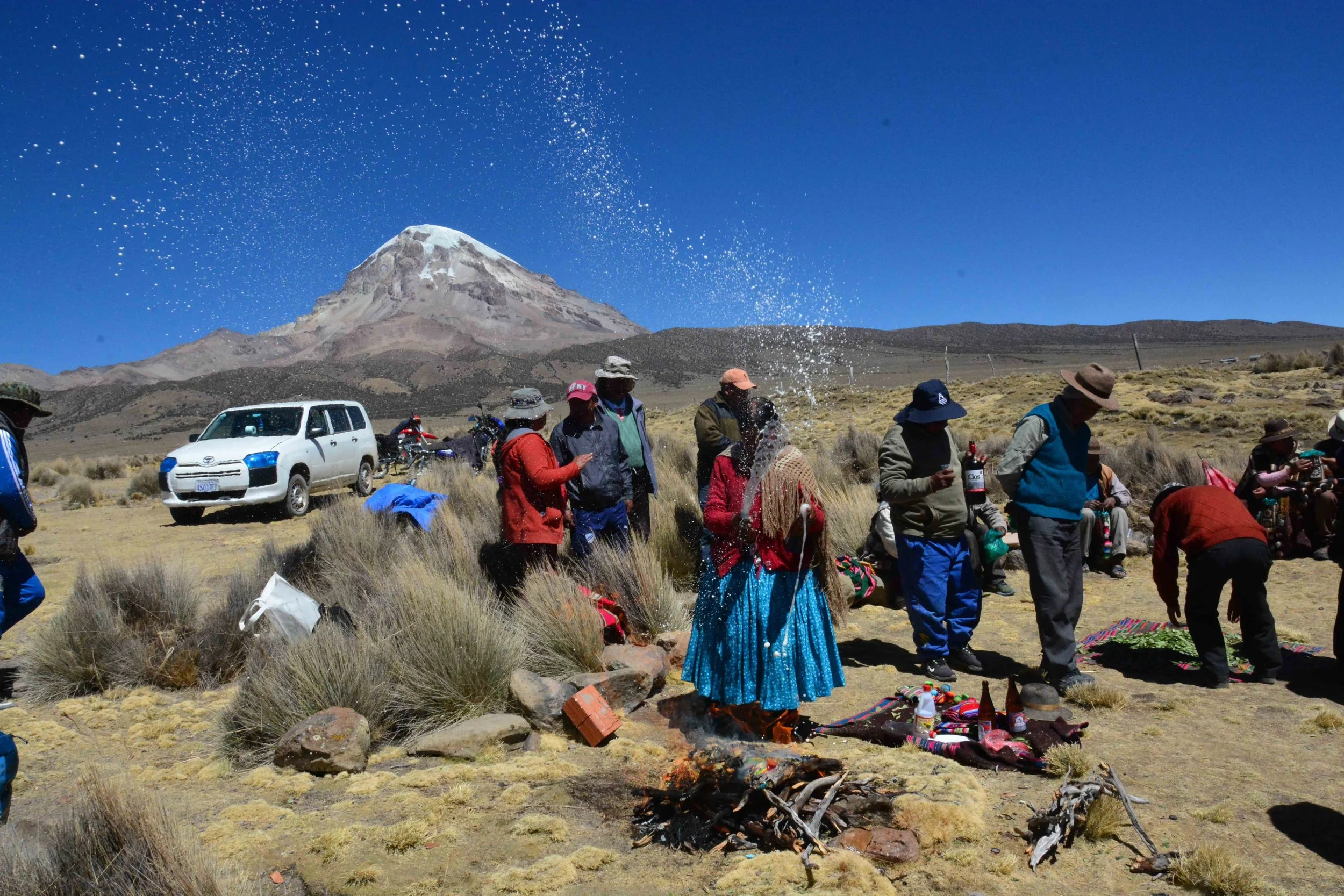andean pastoralism & socioecological change
Most recently, my research has focused on livelihood strategies among indigenous Aymara pastoralist communities in the Altiplano region of western Bolivia. More specifically, my work examines the ways that rural communities actively manage high altitude peat-forming wetlands (bofedales) as pasture for raising native camelids (alpacas and llamas) in the context of environmental change. Agriculture is severely limited on the cold and semi-arid Andean Altiplano, and residents in my study site communities rely primarily on livestock grazing for their livelihoods. Income from trade in fiber and meat is supplemented by occasional wage labor in agriculture, construction, tourism or other activities, typically performed in distant urban centers (most commonly in Chile, but also elsewhere in Bolivia and even as far away as Brazil). In recent decades, local communities have experienced significant levels of permanent or seasonal out-migration for economic and educational reasons, which has influenced grazing practices, the ability of pastoralists to manage bofedal environments, and the maintenance and transmission of traditional knowledge systems. Temporary wage migration is an important part of rural livelihoods on the Altiplano and in fact helps pastoralists return to and remain in their home communities.
Healthy bofedal systems depend on both social arrangements and on biophysical conditions. Social practices such as livestock management, transplanting vegetation, and the construction and maintenance of irrigation canals, as well as institutional arrangements such as customary grazing rights and community- and supra-community pastoralist organizations, are vitally important to bofedal conservation. Bofedal ecosystems, which are crucial for pastoralist livelihoods on the Bolivian Altiplano, are vulnerable to changes in biophysical conditions (particularly water availability) and social relations (particularly out-migration). However, most scholarship on bofedales has focused on biophysical systems, particularly hydrological processes and vegetation ecology while comparatively little research has focused on the social and cultural aspects of bofedal management. My research addresses this disparity by examining the ways that Andean pastoralists are affected by, and in turn adapt to, changing environmental and social conditions. In particular, my research focuses on the practices used by Andean pastoralists to manage bofedal ecosystems and the ways these practices have changed over time in response to environmental and socio-economic transformations.
Another aspect of my research focuses on processes of enclosure and territorialization. Aymara residents my study sites belong to ayllus – forms of socio-territorial organization comprised of extended kin networks. Although ayllus have roots in colonial and pre-colonial forms of social organization and were once widespread throughout the central Andes, in their present form they have been shaped by processes of ethnic revivalism beginning in the 1970s. Ayllus belong to organizational hierarchies that include markas and suyus, and to the organization CONAMAQ (Consejo Nacional de Ayllus y Markas de Qollasuyu), founded in 1997. In the Altiplano, ayllu lands are further divided into family-based grazing parcels known as sayañas. In order for families to maintain their sayaña rights, they must fulfill communal obligations, including a series of leadership roles (cargo), and maintain their herds and pastures according to customary practices (usos y costumbres), as established by members of the ayllu. Thus, it may be said that resource rights within the ayllu are tied to the performance and reproduction of certain practices coded as ‘traditional’ and ‘indigenous.’ At the same time, pastoralists in my study sites have erected barbed-wire fences to demarcate their sayañas in what can be considered a process of “self-enclosure.” Fencing represents a form of individualization that would seem to be at odds with the collectivist ideals that underlie the revivalist ayllu movement. My research therefore examines these multiple processes of territorialization, and the mutually productive relationship between territory and indigeneity in the context of Andean pastoralism.
publications
Forthcoming. Perreault, Tom. Forthcoming (2025). “Adaptive livelihoods in Andean pastoralism: community-based institutions, peatland management, and migration in Sajama National Park, Bolivia,” Mountain Research and Development.


